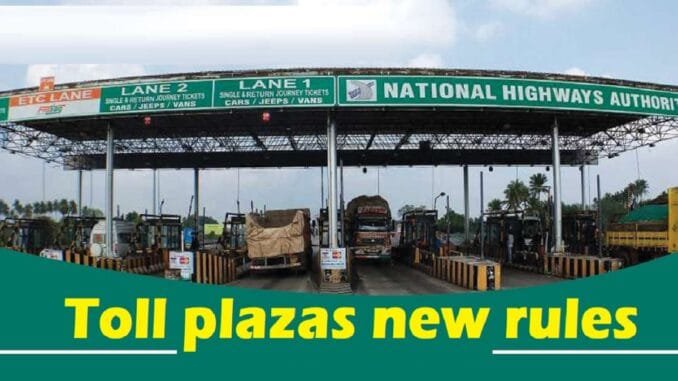
Every day, millions of people travel across India’s national highways and expressways. While these roads offer speed and convenience, toll payments remain a major hassle—from standing in long queues to delays due to low FASTag balance. Now, the Central Government is working toward a permanent solution to simplify the toll collection system and enhance travel efficiency.
The Ministry of Road Transport and Highways is in the process of finalizing a new toll policy, aimed at making toll payments more digital, seamless, and transparent.
New Toll Policy May Launch Soon
Although an official announcement is yet to be made, sources suggest the government is moving quickly to roll out the new system. The revised toll collection model is designed to improve the user experience and eliminate frequent disruptions faced by commuters.
Pay ₹3,000 Once and Enjoy Toll-Free Travel for a Year
In a major shift, the government is considering a proposal where FASTag users can enjoy unlimited toll-free travel for one full year by simply recharging their FASTag with ₹3,000. Under this model:
- No repeated toll deductions
- No minimum balance issues
- Uninterrupted travel
- Better digital tracking and transparency
- Major cost savings for frequent travelers
This could be a game-changer for daily commuters, intercity travelers, logistics companies, transport operators, and cab services, reducing both time and financial costs.
Lifetime Toll-Free Proposal Shelved (For Now)
The government had also considered another ambitious option—offering 15 years of toll-free access for a one-time payment of ₹30,000 at the time of purchasing a new vehicle. However, this proposal was put on hold due to lack of consensus between vehicle manufacturers and toll operators, particularly on revenue-sharing models.
How Will the Government Compensate Toll Contractors?
Naturally, the proposed changes are expected to impact toll plaza operators and concessionaires, who rely on toll collections for revenue. To address this, the government has created a data-driven compensation model. Under this system:
- Each toll plaza will maintain digital records of all vehicle entries.
- Estimated revenue losses will be calculated based on traffic volume and projected collections.
- The government will compensate operators accordingly to cover the shortfall.
What Are the Potential Challenges?
Despite its benefits, implementing a nationwide toll-free subscription model is not without hurdles:
- Ensuring uniform adoption across all states and toll booths
- Training toll staff and contractors
- Preventing data misuse or vehicle classification errors
- Expanding the model to include trucks, buses, and heavy-duty vehicles
To tackle these issues, the ministry has formed a dedicated task force that is working to address all possible flaws before official rollout.
A More Efficient, Cost-Effective Future for Travelers
If implemented successfully, this policy would save time, reduce stress, and cut travel expenses for countless citizens. It would also eliminate common issues like FASTag balance errors, network failures, and manual toll disputes—making travel smoother and smarter.
Stay tuned as the government prepares to introduce one of the most traveler-friendly upgrades to India’s road infrastructure in recent years.

Leave a Reply